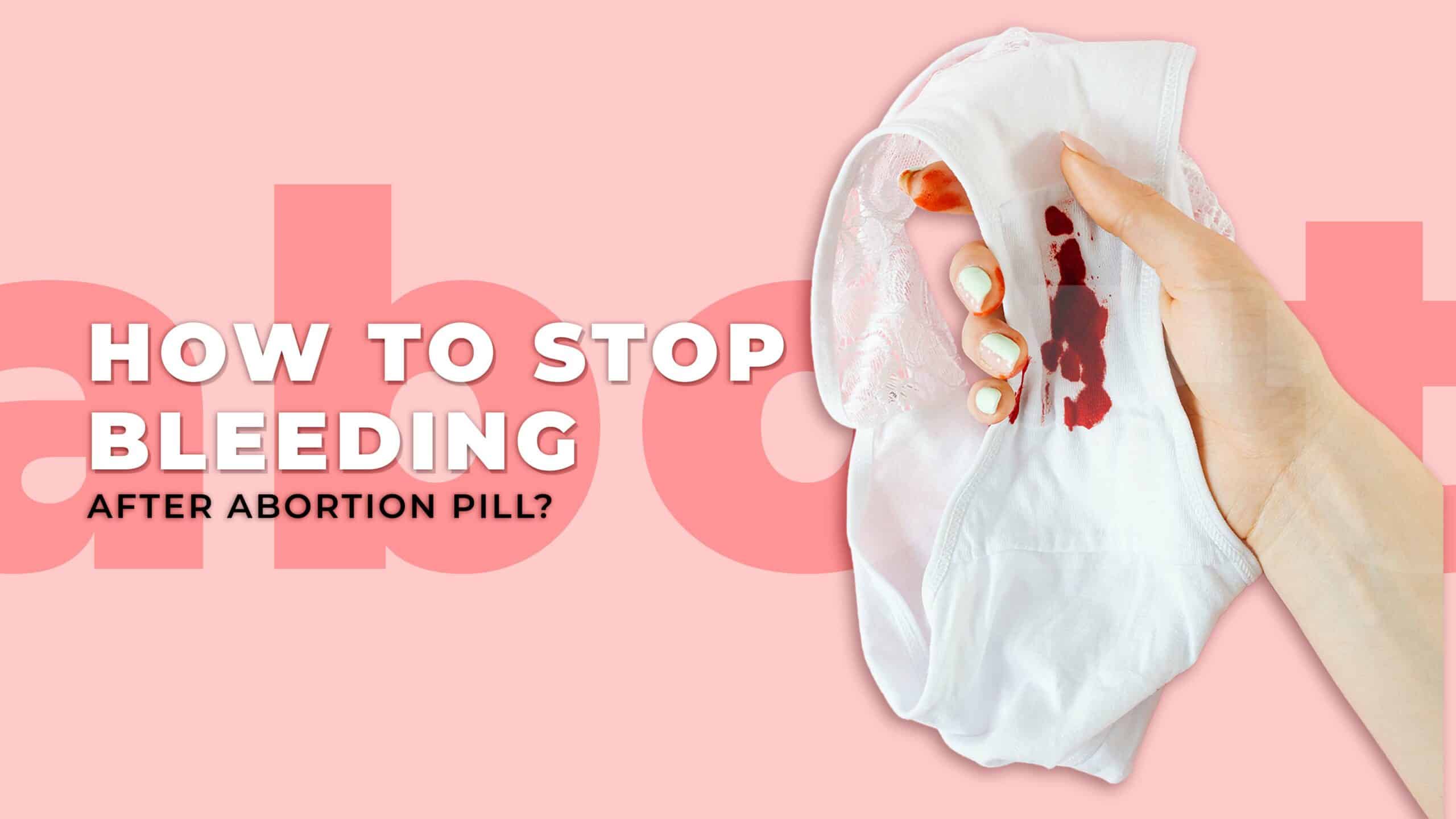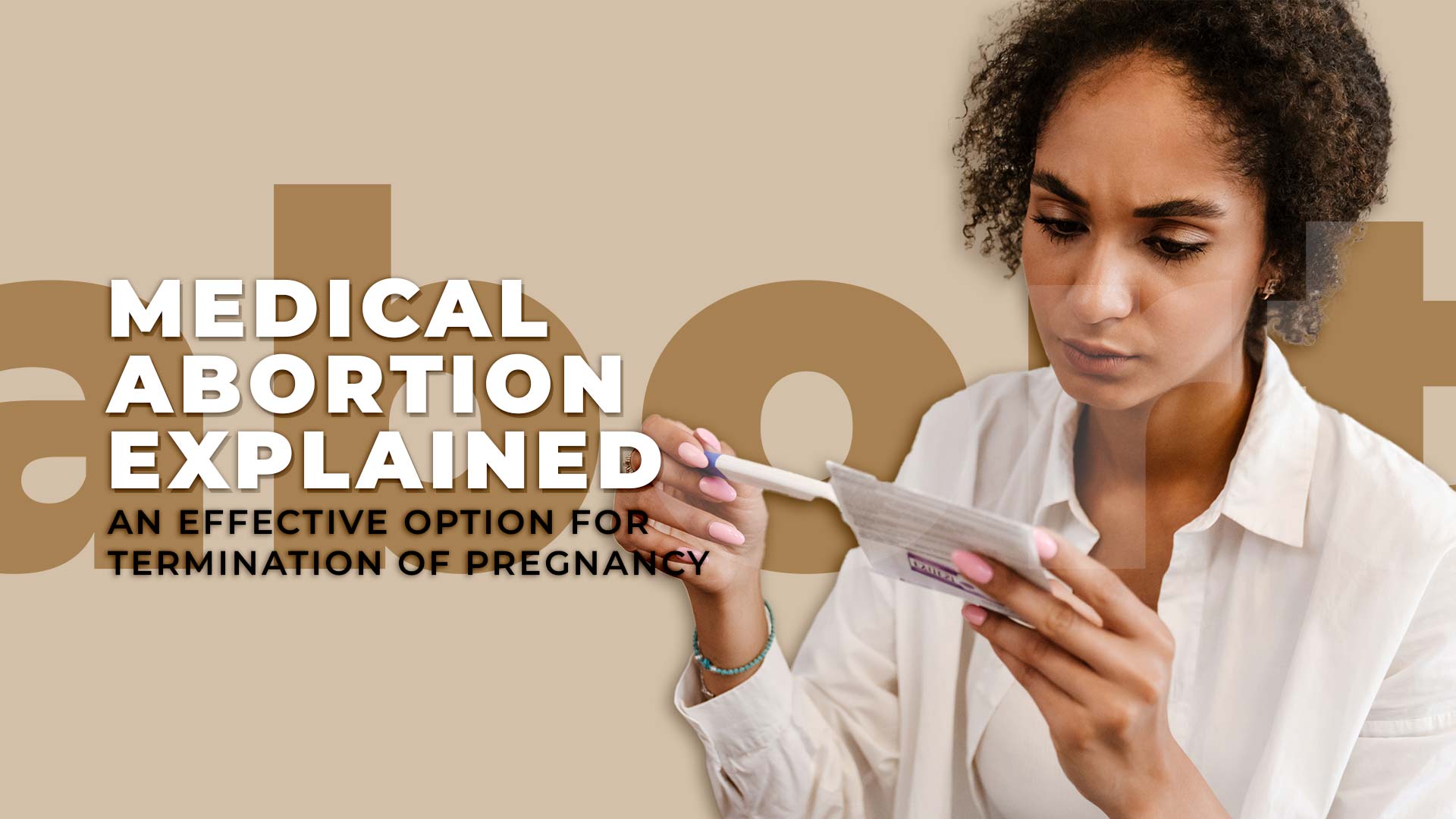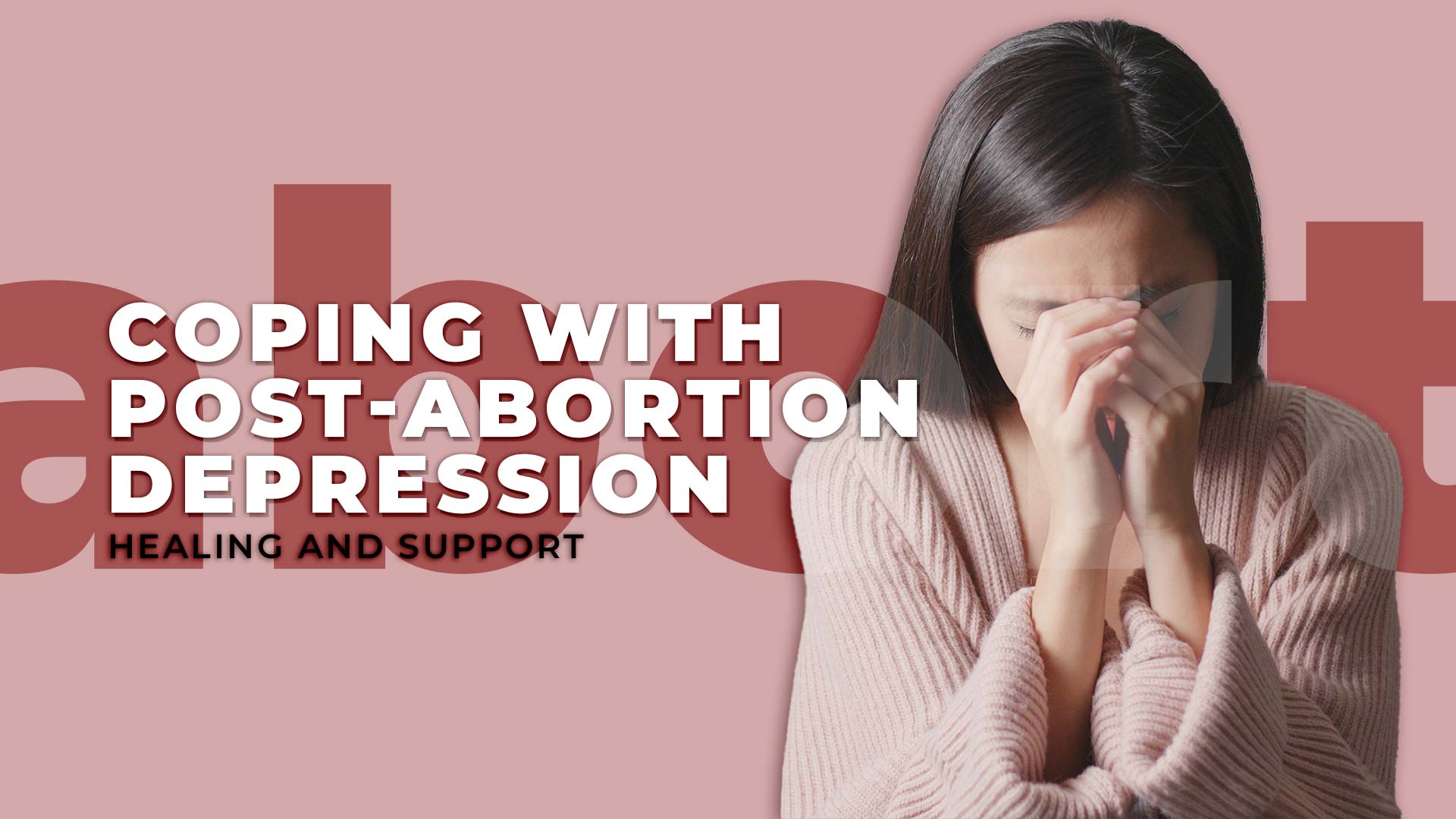Post abortion care refers to the medical and emotional support a person may need after an abortion. It is important to take care of oneself after an abortion, both physically and emotionally, in order to promote healing and prevent any complications.
What to expect after an abortion?
Physically, it is normal to experience some bleeding and cramping after an abortion. The amount and duration of bleeding can vary, but it is usually heaviest in the first few days and gradually decreases. Cramping can also vary in intensity, but over-the-counter pain medication such as ibuprofen or acetaminophen can help alleviate these symptoms.
Follow the instructions provided by the healthcare provider regarding medication, activity level, and follow-up care. It is also important to avoid sexual activity and inserting anything into the vagina (such as tampons) for a certain period of time as instructed by the healthcare provider.
It is common to experience a range of emotions after an abortion, including relief, sadness, guilt, and grief. These emotions are normal and can vary in intensity and duration. It is important to allow yourself to feel and process these emotions and to seek support if needed. This can include talking to a trusted friend or family member, joining a support group, or speaking with a mental health professional. It is important to remember that there is no right or wrong way to feel after an abortion and that seeking support is a sign of strength.
In rare cases, complications can occur after an abortion. These can include infection, bleeding that does not stop, and retained tissue (when not all of the pregnancy tissue is removed). It is important to seek medical attention if any unusual symptoms or concerns arise, such as fever, heavy bleeding, or severe abdominal pain.
Normal side effects of abortion

In order to notice the abnormal side effects of medical abortion, we first need to know what are the normal side effects. They include
- Bleeding
Most women do not experience any bleeding, but some may have bleeding that lasts from 2–6 weeks. It also depends on which type of abortion you have opted for. The chances of bleeding are higher in medical abortion. You may experience heavy bleeding and larger clots during the first few hours, but after 2-6 hours, the bleeding reduces to your normal period flow. This flow will last 3-7 days. Your bleeding might appear brown, spotty, or have clots.
In a surgical abortion, often, there is no bleeding for the first few days, but hormonal changes may cause some bleeding as heavy as a period around the third or fifth day and increased cramping. If you experience heavy bleeding that is bleeding lasts more than a full-sized pad, try deep uterine massaging. To ease the pain, remember to be in a relaxed environment. You can also take pain medicines like ibuprofen after consulting your doctor. Keep a heating pad close or take hot showers. Call your doctor immediately if heavy bleeding continues for more than three hours.
- Cramps/pain
Cramping is completely normal as it occurs due to the uterus returning to its normal, non-pregnant size. It may feel like your menstrual cramps and may intensify during the third or fifth day. It can be accompanied by bleeding and clotting. If you experience a lot of pain, take ibuprofen or a deep uterine massage. It is necessary to be in a relaxed environment for minimal stress.
- Discharge
Discharge is very common after an abortion. It may appear as a non-bloody mucus-like substance with a shade ranging from brown to black. If your discharge is itchy, painful, has a foul odor, or is pus-like, this should guarantee a visit to your doctor.
Abnormal side effects of abortion

If you experience any of the side effects, you should immediately contact your doctor. Ignoring these side effects can prove to be dangerous. It is better to be safe than sorry. Abortion complications are rarely severe, but that does not mean you can ignore the side effects.
- Prolonged heavy bleeding
Heavy or excessive bleeding, which is more than two pads for two hours in a row, or clots bigger than the size of a lemon indicates something is wrong, and you must inform your doctor immediately.
- Unbearable cramps or abdominal pain
Severe pain or cramping should be informed to your doctor.
- Body temperature
Body temperature or fever above 100.4° F or higher after the day of your procedure could indicate an infection; check with your doctor.
Other factors
- Vaginal burning, itching, or discharge
- Headache
- Nausea
- Diarrhea
When can you resume your normal activities after the procedure?
You can resume your normal activities the following day. However, it is recommended to rest for a few days after your abortion. Avoid strenuous activities that cause increased pain. If you receive oral relaxation or narcotic pain medications for the procedure, don’t drive a car for eight hours. However, don’t drive a car for 24 hours if you receive intravenous medications during the procedure.
How to care for yourself after an abortion?

In the days immediately following an abortion, a person may feel tired and drained.
- Physical care
Pain from cramping similar to menstrual cramps is common. People should seek physical and emotional support from a friend or family member. This may include letting someone drive you home after the procedure or someone to who you can talk. Following an abortion, the cervix will take some time to close, which may increase the risk of infection. It may be beneficial for a person to take some time off work after an abortion to rest and avoid physically or emotionally strenuous activities. To reduce the risk of infection, it is important to
- avoid using tampons,
- engaging in penetrative sex,
- introducing any foreign objects into the vagina, and
- going to swimming pools for two weeks following the procedure.
Self-care is crucial after having an abortion, even though the procedure itself may be brief, it can take several days or even weeks to recover physically. Some ways of self-care can include:
- massaging the stomach and lower back,
- using a heat pack,
- taking over-the-counter pain relievers,
- and attending follow-up appointments can aid in recovery.
- Emotional care
Emotional care is also important, and seeking support and allowing time to process the experience can help in the healing process.
Hormonal changes following an abortion can lead to mood swings. As the levels of progesterone and estrogen decrease after the procedure, it can result in feelings of low mood and emotional fluctuations.
As the menstrual cycle returns and hormone levels stabilize, these symptoms may subside. However, some individuals may continue to experience emotional difficulties. Studies have shown that abortion can increase the risk of depression, anxiety, sleep disorders, and other mental health issues. People with pre-existing mental health conditions may be more susceptible to these effects. It is important to take time off work, seek support from loved ones, and contact a healthcare professional if experiencing mental health difficulties.
- Recovery time
The amount of time it takes to recover from an abortion varies from person to person. For those with a first-trimester abortion with no complications, recovery is usually quick, taking only a few days. Late-term abortions may take longer to recover, but complications are rare, occurring in only 2% of cases. In cases where complications do occur, recovery can take several weeks.
- Medical care
A follow-up appointment is typically scheduled a few weeks after an abortion. Further medical attention is usually unnecessary if there are no signs of complications. However, if any symptoms of complications arise, it is important to seek medical attention immediately.
It’s also important to practice self-care after the abortion, including getting enough rest, eating well, and taking time to relax. Contraception should be used to prevent unintended pregnancies in the future. It’s important to follow the instructions provided by the healthcare provider and to seek medical attention if any unusual symptoms or concerns arise.
It is a personal decision, and there is no right or wrong way to feel after an abortion; it’s important to prioritize one’s own physical and emotional well-being. It’s also important to recognize that post-abortion care can vary depending on the individual and the circumstances. Some people may feel more comfortable seeking care from their primary healthcare provider, while others may prefer to see a specialist or go to a clinic. It’s important to choose a healthcare provider that is knowledgeable, compassionate, and respectful and to remember that abortion is a common and safe medical procedure.
Takeaway
It is essential to be aware of the potential barriers to post-abortion care, such as stigma, lack of access to healthcare, and financial constraints. These barriers can disproportionately affect marginalized communities and can have serious consequences for physical and emotional well-being. Advocating for policies and practices that ensure access to high-quality post-abortion care for all individuals is important.
Post-abortion care is vital to reproductive health and well-being. It is important to take care of oneself physically and emotionally after an abortion and to seek support as needed.
References
- Abortion care. (n.d.).https://www.acog.org/womens-health/faqs/induced-abortion?utm_source=redirect&utm_medium=web&utm_campaign=otn
- Jones, R. K., et al. (2017). Population group abortion rates and lifetime incidence of abortion: United States, 2008–2014. https://ajph.aphapublications.org/doi/full/10.2105/AJPH.2017.304042
- Caring for yourself after your abortion. (n.d.). https://www.bpas.org/abortion-care/abortion-aftercare
- Reardon, D. C. (2018). The abortion and mental health controversy: A comprehensive literature review of common ground agreements, disagreements, actionable recommendations, and research opportunities. https://www.ncbi.nlm.nih.gov/labs/pmc/articles/PMC6207970
- Post-abortion care. (2013). https://www.ncbi.nlm.nih.gov/books/NBK304195
- Sajadi-Ernazarova, K. R., et al. (2022). Abortion complications. https://www.ncbi.nlm.nih.gov/books/NBK430793





